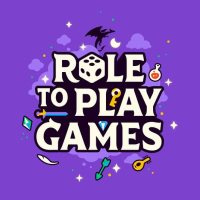The Mystery of NTR revolves around family curses and psychological breakdowns, immersing players in a vortex of terror and truth through enclosed space exploration, moral choices, and layered revelations. As the secrets of the old mansion gradually come to light, can you stay awake in fear, or become the next victim to be swallowed up? This may be the ultimate test of redemption and destruction!
Core plot and gameplay
Environmental Narrative and Exploration:
By searching for hidden clues (diaries, photos, items) in the old mansion, piece together family secrets and unlock the background of the character and the truth of the event.
Mysterious phenomena (such as eerie sounds and illusions) and abnormal behavior of family members suggest supernatural forces or psychological distortions.
Survival and Decision making:
When facing terrorist threats, it is necessary to choose between "facing the truth" or "escaping", and different choices affect the direction and outcome of the plot (such as "exposing the truth", "mental breakdown", or "being cursed and swallowed up").
Multi outcome orientation:
Depending on the depth of exploration and the triggering of different outcomes, such as the origin of the family curse, Jake's survival or fall.
Featured gameplay
Psychological Terror Atmosphere:
Environmental details such as outdated furniture and eerie light and shadow enhance the sense of oppression through dialogue with characters, and players need to deal with gradually escalating fears.
The layers of peeling off family secrets:
Through dialogues, diaries, and fragments of memories, reveal the hidden crimes, betrayals, or supernatural experiments of Jake's family.
Time cycle or illusion mechanism:
Possible introduction of "loop" or "memory flashback" elements may increase puzzle complexity and immersion.
feature
Immersive horror experience of independent games
Closed space in remote old houses: Enhance the sense of oppression through detailed design within limited scenes, such as creaking floors and sudden power outages.
The complexity of family roles: Each family member hides motives and secrets, and their "true" state needs to be judged through observation and dialogue.
Plot driven psychological game
Moral dilemma:
For example, whether sacrificing family members to protect oneself, or revealing the truth leading to catastrophic consequences.
Environmental puzzle solving:
Use items from the old house, such as vintage radios and family photo albums, to solve puzzles and drive the plot forward.
































Preview: